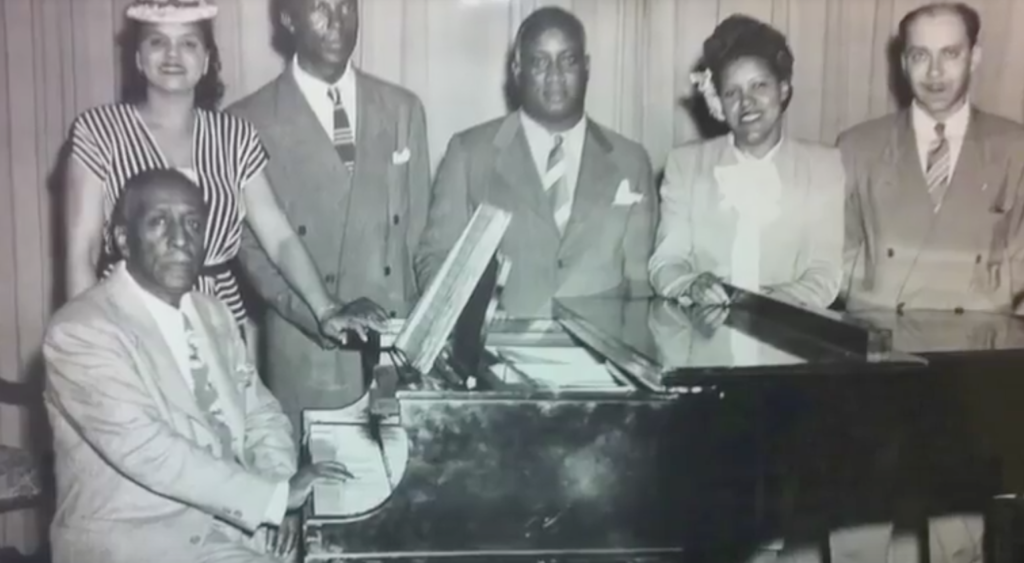About
Harry Lawrence Freeman was born in 1869, four short years after the end of the Civil War and the freeing of the Southern slaves. Born in Cleveland, Ohio, he was slightly removed from the immediate reality of the aftermath of Southern slavery. His family had been free, and had been land owners, before the Civil War began. Freeman’s mother Agnes was an amateur singer, and the young Harry showed early talent as a musician. He sang as a soloist for a church boys’ choir, which he helped to organize at the age of 12. He was also the church organist. At the age of 18, Freeman saw his first opera, Wagner’s Tannhäuser, and was inspired to compose his own works. In 1891, he opened the Freeman Grand Opera Company in Denver, and composed his first opera, The Martyr.
In 1893, Freeman moved back to Ohio and began studying composition with Johann Beck, who at that time was the conductor of the Cleveland Symphony. In the late 1890s, Freeman began work on an opera based on African mythology, and also published popular songs under the name H. Freeman. During this time, he even toured with a blackface minstrel group, writing songs for them. In 1898, his second opera Nada was completed, and later was revised under the title Zuluki.
In 1899, he married Charlotte Louise Thomas, a singer and actress from a prominent black family. In 1900, the Cleveland Symphony debuted excerpts from Freeman’s early operas. He composed several more operas in the years that followed, including An African Kraal (1903), The Octoroon (1904), and Valdo (1906). In 1908, he and his family moved to New York City. During his time in New York, Freeman was inspired by jazz, Tin Pan Alley, early Broadway musicals and vaudeville, and he began to incorporate these styles into his own. Excerpts from his operas were widely performed in the city, including at Carnegie Hall in 1930. In the 1940s, Freeman was working regularly as a concert organizer and conductor and founded the Aframerican Opera Foundation to support African American composers and singers of opera. During the second World War, his music was largely forgotten. He passed away in 1954 in the midst of efforts to revitalize his work as both a composer and advocate.
-Westley Montgomery (Christie Finn, ed.)
This biographical essay is made possible because of the Song of America Initiative for African-American Classic Song, a collaboration between the Hampsong Foundation and Dr. Scott Piper’s Winter 2016 course “The Art Songs of African American Composers” at the University of Michigan in Ann Arbor.
Bibliography:
“H. Lawrence Freeman Papers 1870-1982 1890-1954: Biographical Note.” Columbia University Libraries Archival Collections, Rare Book & Manuscript Library. Web. 9 March 2016. <http://www.columbia.edu/cu/lweb/archival/collections/ldpd_6381639/index.html>.
Hapka, Christopher. “Harry Lawrence Freeman.” US Opera. Web. 14 March 2016. <http://usopera.com/composers/freeman.html>.


